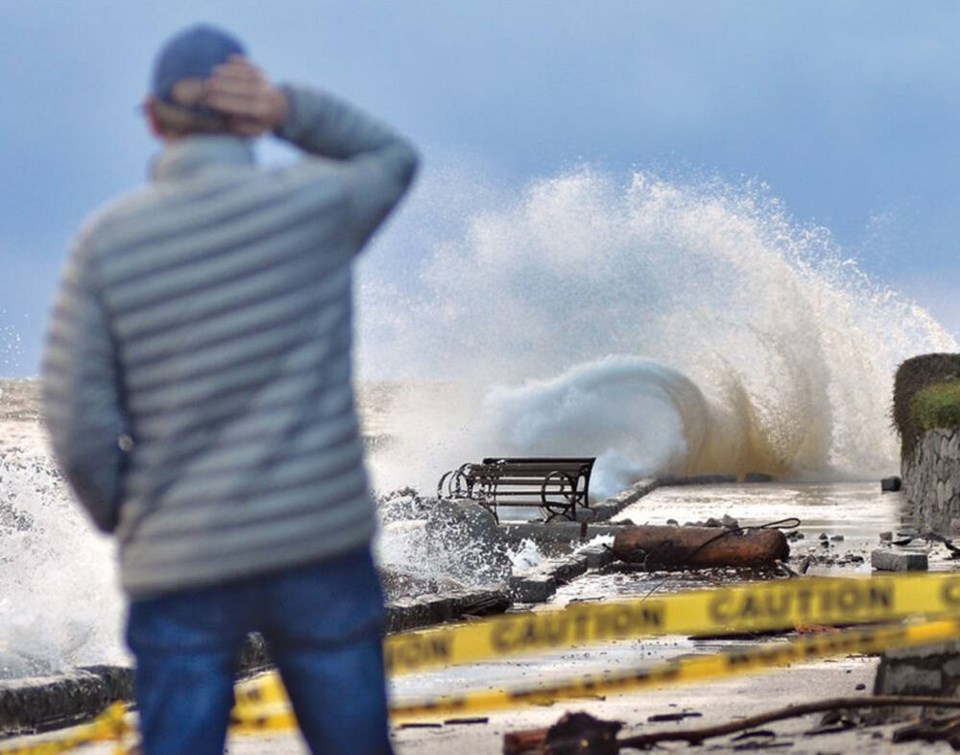Atmospheric rivers could raise sea levels along the west coast of North America by as much as 200 per cent compared to the past, a new study has found.
The research, published in the journal Communications Earth & Environment, focused on the coastal areas of California, Oregon and Washington.
But lead researcher Christina Shields says the findings could also have significant implications for British Columbia.
“The major impact for coastal British Columbia, would be that [atmospheric rivers] in the future, which will be wetter and carry more precipitation, will also have to contend with a temporary increase in ocean height, similar to a storm surge,” said Shields.
This month, B.C. was hit with an atmospheric river that led to the deaths of four people — including two drivers on Vancouver Island, one teacher in a Coquitlam mudslide, and a man walking near a swollen river.
To carry out their study, Shields and her team at the National Center for Atmospheric Research in Boulder, Colo., used high fidelity simulations that more accurately represent processes in the ocean.
Compared to past studies, she said that gave them and colleagues at Texas A&M University and Pennsylvania State University a more realistic view of how the ocean behaves when an atmospheric river arrives.
That modelling re-enforces past research that shows atmospheric rivers will be wetter from the sky. But it also showed how the often-windy “Pineapple Express” rainfall events, pushing more water toward the coast, can lead to worsening flooding.
Their findings offer “key information” for city managers as they look to plan for future flooding and atmospheric river events over the coming decades, said the researcher.
In an email, Shields said the study modelled future climate projections based on a world where humans keep burning fossil fuels at a similar level.
“Hopefully, this scenario will not come to fruition and we will be able to cap emissions so that the impacts will be far less,” Shields said. “It is only a possible future.”




